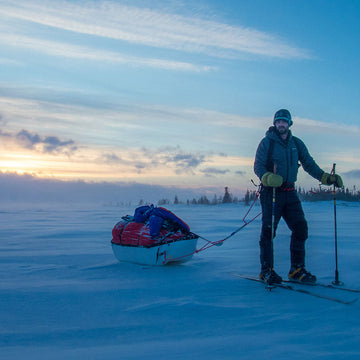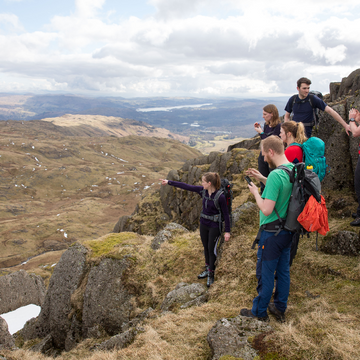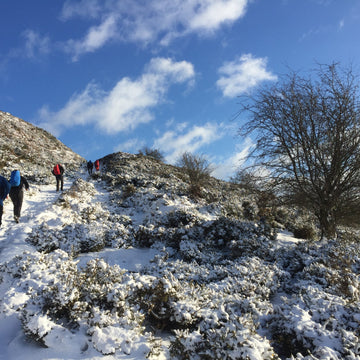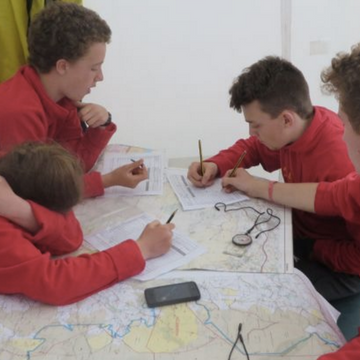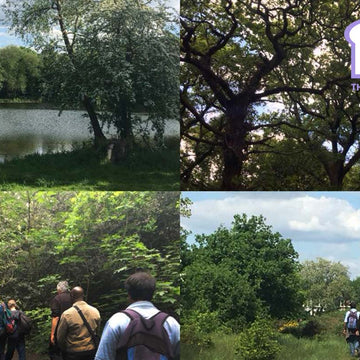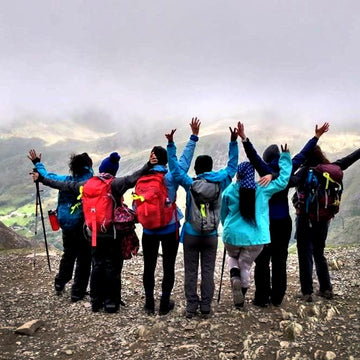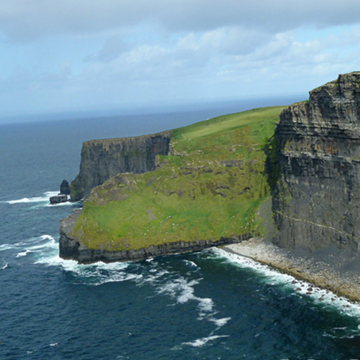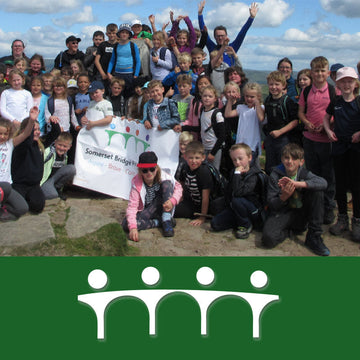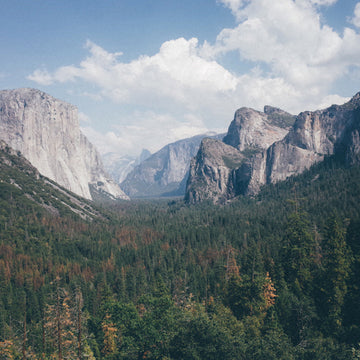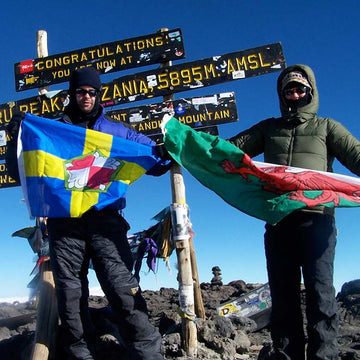
Winter walks in the Lakes require finesse. Prepare to step into the landscape's icy embrace and find warmth in your gear. The adventure is there for the taking.
We’re big fans of autumn/winter walking and everything it throws at you - amazing colours, horrible weather, gorgeous weather, dark days and fresh mornings. Throw in toasty warm evenings, good food, good beer and good company, and you have a recipe for some pretty awesome adventures. We can help you with a structure, a guide or an outline, but at the end of the day it's up to you to make your own path.
“Not I, nor anyone else can travel that road for you. You must travel it for yourself. It is not far. It is within reach.”
- Walt Whitman
Having the freedom to choose your own route and your own stay-overscan lead to real winning adventures.Sometimes you may want to leave the wild camping equipment at home, particularly in these colder months. So linking together pubs, b&b's and hostels opens up a whole world of opportunities to create your own adventure.
Utilizing the YHA network can really open up possibilities when going for multi days walking.
The YHA offer over 150 hostels and camp sites across the UK, and the Lake District is home to several of them. Many of these remain open through the winter months and so are great options if you want to #GoNicePlacesDoGoodThings through the colder months.
Remember that winter days are shorter so an early start is recommended. Plus, those winter sunrises can really be worth setting the alarm that little bit earlier, so make the most of it.
This guide is centred around Ambleside, and is meant as just that. a guide. You can alter the route, opt for different stop overs and ultimately create your own adventure along the way and #WinWinter.
Ambleside is easily accessible by car, or by train and bus via Windermere, and the YHA at Waterhead is one of the biggest and best in the YHA estate, with a waterfront location and sweeping views across Windermere to the Coniston and Langdale fells beyond. We recommend a stay here before or after this 3/4 day walk.
Day 1: Ambleside to Borrowdale (25km)- On paper this seems a long day, and you’re straight into it with a climb over Loughrigg to get the blood pumping.
From Waterhead we head around the top of Lake Windermere and through Ambleside, picking up the path through the park and across the River Rothay.After this it’s straight into it, heading steeply up the main bridleway ascentuponto Loughrigg Fell.
Route finding towards Loughrigg summit can be tricky as a myriad of paths crisscross the hillside, but once you get there the views are well worth the effort.
Once you’ve taken in the landscape and caught your breath, descend into Elterwater past the Langdale YHA (closed during winter). Here the route picks up the Cumbria Way, taking the well-marked paths up Langdaleandfollowing Mickleden Beck up and over Stake Pass.
Stake Pass marks the watershed where water flows south to Morecambe bay or north into the Solway Firth.
The descent via Langstrath Beck is rough and can be wet with numerous stream crossings.Once again, the views are your reward– this time of the falls in Langstrath (Black Moss Pot and Gallery Force).WhereLangstrath joins Stonethwaite Beckyour path turnsheading downto the welcoming YHA at Borrowdale.
Day 2: Borrowdale to Keswick (24km) -It’s not that far to Keswick from here, but we wanted to include some lesser known peaks.
After a hearty breakfast at YHA Borrowdale we follow the River Derwent around Johnnys Wood to the pretty hamlet of Seatoller.
From here the steep first ramp of Honister pass is visible – the pass is usually impassable to cars during winter weather, but our route follows beside the pass up to the slate mine at the top. Here we pass the Honnister YHA (closed in the winter) and the road crossing here is a popular resupply and meeting point for those fell runner types attempting a Bob Graham round.
From here our route heads steeply up on to Dale Head, and the views back into Borrowdale and down towards Buttermere are some of the finest in Lakeland, particularly under a blanket of snow or on a cold crisp morning.
From Dale Head the route descends slightly to then climb again up onto the strangely named Robinson*
*(According to A. Wainwright this peak is named after a Richard Robinson who owned estates in the area centuries ago).
From Robinson our route follows the North east ridge, the path is clear but does involve a series of rocky steps. These can be a little hands-on and care should be taken in winter conditions.
The path descends with Scope Beck to the right to pick up a tarmac road, past the pretty Newlands Church and down towards Little Town.
From here we climb on a steep zig zag path on the flanks of Cat Bells. This can be a busy summit with easy access from Keswick and fantastic views back over Derwent water.
Next we descend towards the lake shore via Manesty Park to pick up the clear path around the Lake to Portinscale and on into Keswick with its many pubs, restaurants, shops and the riverside YHA Keswick – extensively refurbished after the terrible 2015 floods.
Day 3: Keswick to Grasmere (26km) - Leaving Keswick can be difficult, it has everything you need – all amenities, lake side fun and easy access to proper mountains.
From the Riverside YHA we head SE towards Springs wood via the centre of town and Springs Road, following Brockle beck past Rakefoot Farm and up to Castlerigg Fell, (the famous stone circle is well worth a diversion if you have time).
The path from here heads up to Bleaberry Fell. The ground here can be very boggy, so it can be best explored in winter conditions when the ground is harder and frozen.
Next, the route crosses the watershed of Ashness Gill above the famous Bridge of the same name – apparently the most photographed in the Lake District.
We continue on similar ground over High Seat, High Tove and on to Blea Tarn.
From Blea Tarn we begin the climb to the days high point at High Raise (762m).
First up is Ullscarf (726m) before descending slightly to then climb up to High Raise and then on across the plateau to Sergeant Man (736m).
The descent to Grasmere, under Belle Knot and down towards Easedale Tarn is pretty clear and should pose no issues in clear conditions. The clear path around the tarn can be boggy but is easy to follow.
From the far end of Easedale Tarn we descend alongside Sourmilk Ghyll, The main falls are well worth a look – particularly during very cold winters where they freeze and can be climbed as ice routes. Then all that’s left is the steady walk on the clear path down the valley to Grasmere.
There are two great YHA options in Grasmere, we chose Burlap Hall here as Grasmere YHA is closed during winter (also be aware thart Burlap Hall is only open on weekends during the winter months, so you'll need to plan your walk accordingly).
Grasmere is a great spot to end our walk, it’s easy to return to Ambleside via the path around Grasmere and Rydal Water, or if you’re feeling more adventurous then maybe an Ascent of Helvellyn and a return via Fairfield horseshoe could be of interest. Either way, we’re sure you won’t be disappointed (or there’s a regular bus link to Ambleside and Windermere if you’re feeling the last 3 days).
NB: this guide is intended as just that, a guide. If you intend to walk the route at anytime of year then you should always carry a map and compass and know how to use them. This route also crosses some high ground and in full winter conditions will demand winter equipment like crampons and/or an ice axe. You should always check the weather before heading into the hills and if in any doubt as to your experience or the conditions then it is best to stick to lower level routes.

